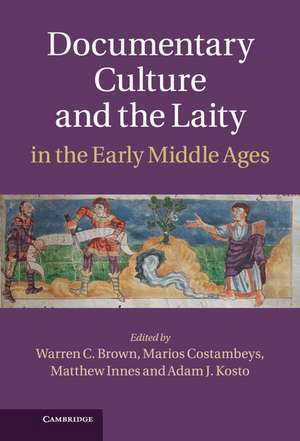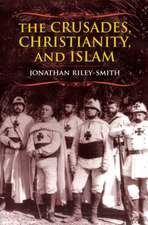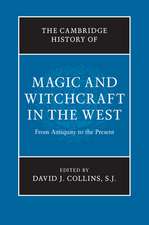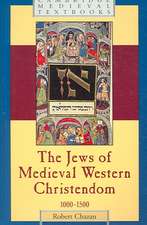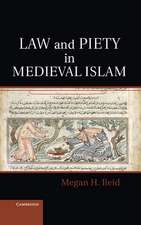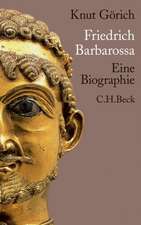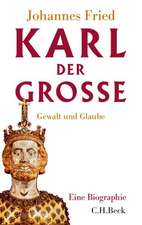Documentary Culture and the Laity in the Early Middle Ages
Editat de Warren Brown, Marios Costambeys, Matthew Innes, Adam Kostoen Limba Engleză Hardback – 21 noi 2012
Preț: 834.52 lei
Preț vechi: 970.37 lei
-14% Nou
Puncte Express: 1252
Preț estimativ în valută:
159.74€ • 173.57$ • 134.26£
159.74€ • 173.57$ • 134.26£
Carte tipărită la comandă
Livrare economică 21 aprilie-05 mai
Preluare comenzi: 021 569.72.76
Specificații
ISBN-13: 9781107025295
ISBN-10: 110702529X
Pagini: 406
Ilustrații: 3 b/w illus. 2 tables
Dimensiuni: 152 x 231 x 28 mm
Greutate: 0.72 kg
Ediția:New.
Editura: Cambridge University Press
Colecția Cambridge University Press
Locul publicării:New York, United States
ISBN-10: 110702529X
Pagini: 406
Ilustrații: 3 b/w illus. 2 tables
Dimensiuni: 152 x 231 x 28 mm
Greutate: 0.72 kg
Ediția:New.
Editura: Cambridge University Press
Colecția Cambridge University Press
Locul publicării:New York, United States
Cuprins
1. Introduction; 2. Lay archives in the Late Antique and Byzantine East: the implications of the documentary papyri Peter Sarris; 3. Public administration, private individuals and the written word in Late Antique North Africa, c.284–700 Jonathan P. Conant; 4. Lay documents and archives in early Medieval Spain and Italy, c.400–700 Nicholas Everett; 5. The gesta municipalia and the public validation of documents in Frankish Europe Warren C. Brown; 6. Lay people and documents in the Frankish formula collections Warren C. Brown; 7. Archives, documents and landowners in Carolingian Francia Matthew Innes; 8. The production and preservation of documents in Francia: the evidence of cartularies Hans Hummer; 9. The laity, the clergy, the scribes and their archives: the documentary record of eighth- and ninth-century Italy Marios Costambeys; 10. Sicut mos esse solet: documentary practices in Christian Iberia, c.700–1000 Adam J. Kosto; 11. On the material culture of legal documents: charters and their preservation in the Cluny archive, ninth to eleventh centuries Matthew Innes; 12. Documentary practices, archives and lay people in central Italy (mid-ninth to eleventh centuries) Antonio Sennis; 13. Archives and lay documentary practice in the Anglo-Saxon world Charles Insley; 14. Conclusion.
Recenzii
'Most studies of early medieval literacy have emphasised the role of the Church in the production of written documents. This collection puts the spotlight on the involvement of the laity, and vividly reveals the extent to which laymen played an active role in documentary culture throughout the post-Roman World, from the Eastern Mediterranean to Anglo-Saxon England. In so doing it greatly enriches our understanding of government, administration and estate organisation in the centuries after Rome's fall.' Ian Wood, University of Leeds
'This is an extraordinarily important book for anyone seeking to understand the profound penetration of text culture into pre-modern societies. The authors raise fundamental questions about the meaning of archives, the reasons that documents were preserved, copied, or destroyed, and the relationship between changes in lay documentary practice and social and economic change, as well as between document preservation and political and ecclesiastical power. The cumulative result is a radical revision of facile, if long-popular, assumptions about orality, literacy, and textuality in Europe prior to the twelfth century.' Patrick J. Geary, Institute for Advanced Study
'If Mabillon was the Newton of diplomatics, this book is the Einstein, overturning old paradigms and forcing us to think anew about early medieval documents. Did we imagine that the Early Middle Ages was an 'oral culture'? That only public institutions had 'archives'? That monks and clerics alone were 'literate'? That 'the laity' started to appreciate writing only in the twelfth century? This book makes us realize how limiting those old terms have been. We can now say with considerable confidence that people at every level of early medieval society knew about, valued, used, and depended on the written word.' Barbara H. Rosenwein, Loyola University Chicago
'Taken as a group, these essays demonstrate important continuities and changes in lay documentary practice from late antiquity up through the high Middle Ages. There is new information and new ideas, including agendas for future work that need to be explored in order to develop a more sophisticated appreciation of early medieval documentary practice. The volume also offers solutions, indicating for example new ways in which the dichotomies of public-private and lay-clerical could be reinterpreted.' Marco Stoffella, Early Medieval Europe
'This is an extraordinarily important book for anyone seeking to understand the profound penetration of text culture into pre-modern societies. The authors raise fundamental questions about the meaning of archives, the reasons that documents were preserved, copied, or destroyed, and the relationship between changes in lay documentary practice and social and economic change, as well as between document preservation and political and ecclesiastical power. The cumulative result is a radical revision of facile, if long-popular, assumptions about orality, literacy, and textuality in Europe prior to the twelfth century.' Patrick J. Geary, Institute for Advanced Study
'If Mabillon was the Newton of diplomatics, this book is the Einstein, overturning old paradigms and forcing us to think anew about early medieval documents. Did we imagine that the Early Middle Ages was an 'oral culture'? That only public institutions had 'archives'? That monks and clerics alone were 'literate'? That 'the laity' started to appreciate writing only in the twelfth century? This book makes us realize how limiting those old terms have been. We can now say with considerable confidence that people at every level of early medieval society knew about, valued, used, and depended on the written word.' Barbara H. Rosenwein, Loyola University Chicago
'Taken as a group, these essays demonstrate important continuities and changes in lay documentary practice from late antiquity up through the high Middle Ages. There is new information and new ideas, including agendas for future work that need to be explored in order to develop a more sophisticated appreciation of early medieval documentary practice. The volume also offers solutions, indicating for example new ways in which the dichotomies of public-private and lay-clerical could be reinterpreted.' Marco Stoffella, Early Medieval Europe
Descriere
This revealing study explores how people at all social levels, whether laity or clergy, needed, used and kept documents.
